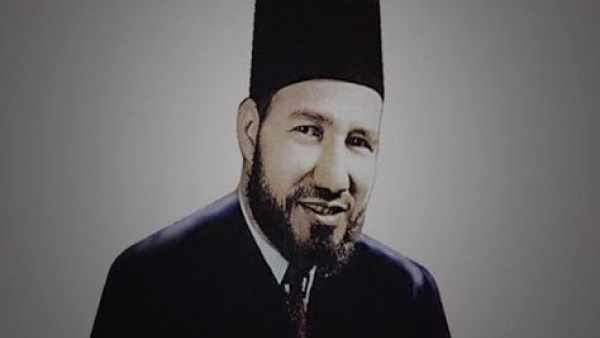How did the founder of the Muslim Brotherhood go to the “illusion” of the world's professorship?

On the first night of Muharram in 1365 AH,
Hassan al-Banna, founder of the Muslim Brotherhood (1928), took the platform of
Al-Azhar University to recite the Prophet's biography in celebration of the new
Hijri year. This speech, which was witnessed in December 1945, was the first in
the university. The revival of the hijra occasion was confined to the Al-Azhar
mosque, but the students of the Muslim Brotherhood organized the celebration
and invited the founder of their group.
Al-Banna adopted a long-term plan that enabled
him to reach the pulpit of the largest religious university; to realize the
dream of the world's "delusional" professorship, which was revealed
in his autobiography. At first, the group attracted Egyptian and expatriate
students, and then held parties for whoever was appointed as Al-Azhar Sheikh
since the 1930s.
The ambassadors of the group in the 1930s
The biographies of the first generation of the
group have discussed how to establish Muslim Brotherhood groups in some
countries by students who had traveled to the Al-Azhar University. But they
knew the way to the "Communication Department" established by
Al-Banna. He met these students and communicated with them through Tuesday
weekly sermon.
Djibouti was the first country in which the Brotherhood
established a branch in 1932. After returning home, Djibouti youth sent a
letter to the founder informing him that they had transferred his experience to
their country and wanted him to provide them with the necessary lessons and
lectures to officially announce the inauguration of the Brotherhood in
Djibouti. Abdullah Hussein Al Yamani was also appointed by the Guidance Office
as the link between the Djibouti branch and the Guidance Office.
On the same path, South African students went
to study in Al-Azhar; they played a major role in the transmission of Muslim
thought to southern Africa. Through their association with the group's
international organization, many investments were implemented that strengthened
their influence in the country.
At the same time, the Yemeni students Ahmad
Muhammad al-Nu'man and Muhammad Mahmud al-Zubairi joined Al-Azhar University in
1937, beginning to communicate with the founder of the group, who relied on
them in planning the coup against Imam Yahya in 1948.
"Our first gathering was in Cairo when we
were studying at Al-Azhar, and we started contacting the Brotherhood, including
Sheikh Hassan al-Banna, who believed that Yemen was the most appropriate
country to establish the right Islamic government, and that the climate is
suitable for the Brotherhood to work in. We were particularly interested in
this, and from here the national movement started among the Yemeni students.”
Sheikh Adam Abdullah al-Iluri was the first
seed of Muslim thought in Nigeria. He was educated by the founder of the group
when he went to Egypt to study at Al-Azhar in 1944. He learned the values and
principles of the group and then returned to his country.
The communication department was also
interested in Nigerian students coming to study at Al-Azhar University, and
they had to be the nucleus of the group's ideas after their return to their
country. They were the nucleus of the international organization of the
Brotherhood.
Security warns
In September 2015, the London-based Asharq al-Awsat
reported that the Muslim Brotherhood exploited foreign students after the June
30, 2013 revolution, which overthrew the Brotherhood's rule to involve them in
riots and helped facilitate their travel to Turkey through to the battlefields
of Syria.
According to the security reports, terrorist
and extremist groups are actively recruiting students for the use of violence
and have succeeded in deceiving some of these students, some of whom joined
Daesh and participated in the Brotherhood demonstrations, especially following
the dismissal of former President Mohamed Morsi.
The report revealed that the Muslim
Brotherhood is adopting a strategy of their own to attract expatriates, who are
working to provide all their material and living needs to join the group, and
many expatriates are persuaded to establish the idea of the Muslim
Brotherhood in their country when they return.
Islamic Mission City: the dream of expatriates
Naser, a student at the Faculty of the Origins
of Religion, said that he came from Nigeria to study at Al-Azhar and did not
register at the Islamic Mission City because he came to Egypt without a
scholarship.
He explained to the Reference that the lives
of the international students in the Islamic Mission City is not difficult, and
the university provides them with assistance and services, noting that the
students who did not get living in any housing outside the city get vulnerable
to polarization, especially that there are groups that help them with food or
other.
He said that they work in Islamic libraries
during the summer vacation, to make the expenses of housing and food and the
expenses they need to complete the study, adding that he benefits from the
science of Al-Azhar, but does not benefit from subsidies that can protect
students from being blackmailed by extremist groups.







